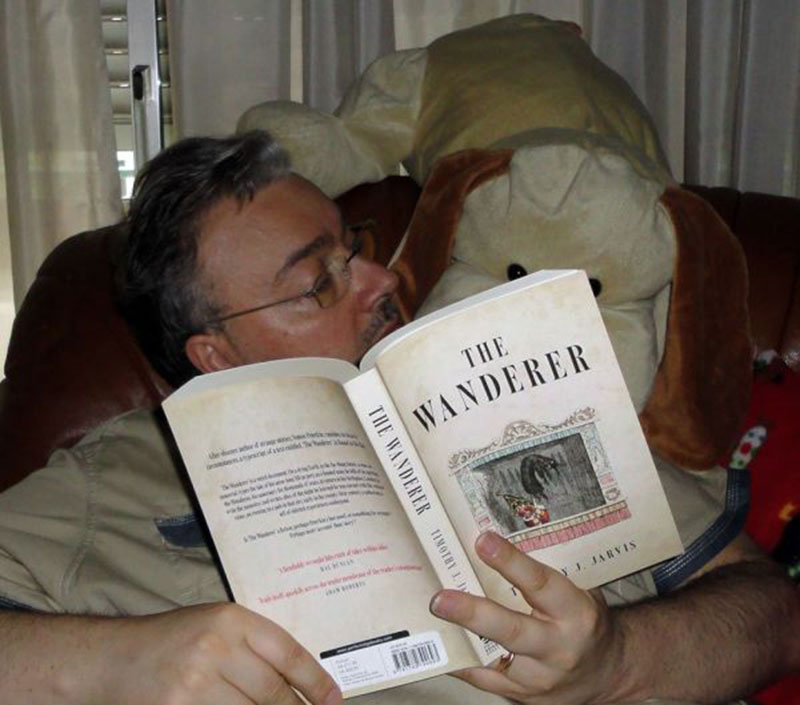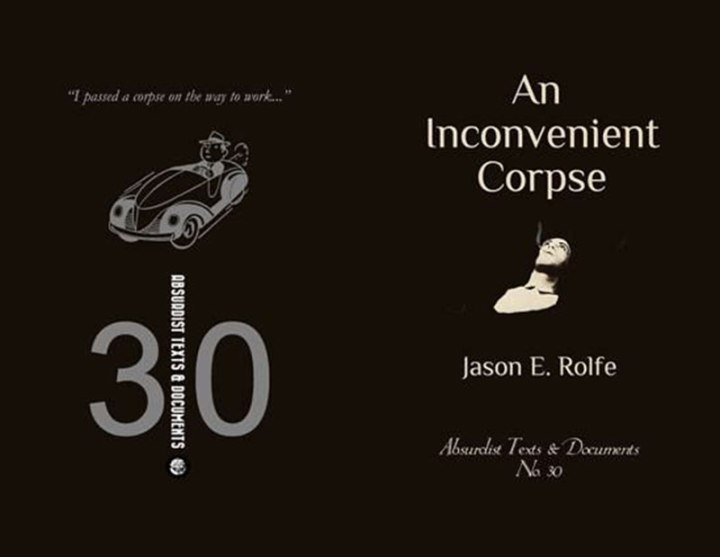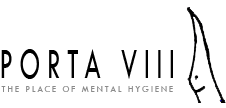#januhairy

Vamos ser claros: aqui esta-se perante o regresso do movimento Gina dos anos 80 e mais nada.

Vamos ser claros: aqui esta-se perante o regresso do movimento Gina dos anos 80 e mais nada.
Não vou a qualquer rede social que utilizo e/ou utilizava desde o inicio deste mês. O motivo é menos o cansaço e mais o não ter nada de interessante a dizer. Fico sempre com a obrigação de efectuar um like, um comentário.
E afinal o que vou dizer? Que estou a ler um novo livro. Colocar uma foto de comida? Uma foto de moi numa composição marada?
Não será um narcisismo elevado à décima potência? Uma auto-glorificação de likes? É-me, actualmente, indiferente.
Sinto o vício a despontar debaixo da unha. Aquele necessidade abrasadora de ir lá fazer nada, alguma coisa, mas a ausência de reciprocidade, a deselegância recorrente bastou-me; talvez.
Escrevo aqui, claro que sim – sempre. Escrevo para mim. Aqui sinto-me interessante.
Isto está de mal a pior de tal forma que ontem me senti aborrecido. Eu aborrecido é uma novidade. Sem vontade para ler, escrever já não o faço há meses, para ver um filme e/ou uma série. Sem vontade para tudo e para nada.
E quando este sentimento nauseabundo se hospeda em mim leva-me a formatar alguns comportamentos, atitudes. Limpar o disco mental. Começar do zero. Desaparecer do contacto real e virtual. Assim, terminei a conta no Flickr que tinha desde 2006 ou 1996?? Não acedo ao Facebook e ao Twitter desde o início do mês e removi essas contas do telemóvel.
Tenho na mesa-de-cabeceira uma pilha de livros que fui, ontem, colocando de parte – zero vontade, total aborrecimento. A partir de certo momento parei de procurar. Stop obsessão.
Sei que o apetite irá despertar a qualquer momento e aí estarei numa curva ascendente – voraz!
Hoje chegou uma nova remessa de livros. Novidades para breve ou talvez não.
After reading the story Nae Greeance o’ Bane I need to read more words written by Timothy Jarvis so I have bought The Wanderer and I can just say for now that it is an unmatched brilliance.
About Nae Greeance o’ Bane:
I was absolutely gripped during the entire story. Nae Greeance o’ Bane by Tim Jarvis is scary, claustrophobic and even funny. I loved the pacing of this story and the way Tim Jarvis creates a bizarre situation. If it were a movie, I would say that the CGI effects were the best and that the characters of Jeff and Tommy well developed.
You have to read this story. You won’t believe how good it is.
1. Do you have a specific writing style?
I’ve used the word ‘antic’ to refer to the way I write. Antic, which combines a sense of the grotesque with the bizarre and has overtones of the archaic, seems to me to go against consistency and seriousness of tone. A dark mood and a kind of unity of affect is often prized in modern Gothic and horror writing. I’d relate this, to go back to one of the roots of modern genre, to what Edgar Allan Poe called his ‘Arabesque’ side. But I’ve always found Poe’s ‘grotesque’ or impish and darkly humorous mode just as, and possibly even more, compelling. I particularly like how, in his strange puzzle of a novel, The Narrative of Arthur Gordon Pym, he veers jarringly between these opposed atmospheres. In my own work, I try to shift abruptly from cloying sentiment, to excessive gore, from eldritch horror to comic absurdity.

the wanderer
I also use found manuscripts, frame narratives, and stories within stories in my work, because I want them to seep out and contaminate the world in which the reader reads, not be closed fantasies. I feel more of an affinity to the disorienting involutions of a labyrinthine narrative, than I do to strong, neat plotting, and I hope to stretch readers’ comprehension and test their patience as much as possible.
2. What books have most influenced your life?
As a child I read Alan Garner’s The Weirdstone of Brisingamen and The Moon of Gomrath, and was immediately struck by them. They’re so different from other children’s fantasies, there’s bleakness to them, a sense of real peril, a narrative complexity and also a profound engagement with the land, Alderly Edge in Cheshire, and its lore – the books are not a motley mix of different mythologies, but a sustained and powerful engagement with British folktale. Their sense that the fantastic is not hermetic, sealed off from the ‘real’ world, has been a profound influence on my thinking and writing. In 2012, Garner finished his trilogy with a final volume, Boneland, which portrays one of the children of the earlier books, now a grown man dislocated and disturbed, still dealing with the trauma of his encounter with the fantastic, which he has erased from his memory, but which still marks him in horrible ways. But that atmosphere is already there in the earlier books, and in Garner’s other novels from the 1960s, Elidor and The Owl Service, and it is an atmosphere that profoundly shaped my thinking growing up.
3. If you had to choose, which writer would you consider a mentor?
I’d written some tales of adventure when I was young, but didn’t think of myself as a writer, or consider that it was something I wanted to do, till I was in my early twenties. Three writers, whose work I was reading obsessively at that time, had a profound influence on the way my inchoate fiction developed: Angela Carter, whose exhilarating formal inventiveness and transmutative, yet grounded, fantastic, I still attempt to ape; M. John Harrison, whose bleak, cruel, and dreary otherworlds in the Viriconium sequence, and the novel The Course of the Heart, were a huge influence on me, and whose thoughtful poetics, expressed on his blog and in essays, continues to inspire me; and Jorge Luis Borges, whose stories, especially those in which the unreal is found at the heart of the ‘real’, I found, and still find, have a powerful hold over me.
4. What are your current projects?
I’m currently working on a portmanteau novel which tells of London falling into decay and dissolution, and of the discovery of a series of manuscripts that relate stories of city’s tutelary daemons. Another strand details the life and death of a Belgian decadent poet during the siege of Paris in 1870. These two strands are bound up together by the idea that the crises in the cities are related to the decline of their daemons.
5. How much research do you do?
I don’t, as a general rule, do much specific research; I mostly read fiction, and steep myself in the atmosphere of various stories. But I do read up on a historical period if a narrative calls for it – I think it especially important for writers of the uncanny to get details right, seed the text with believable realistic elements that jar with the fantastic parts of the narrative. And I also tend to write about places I know and to walk them before writing; my practice is not psychogeographical, though, I’m not wearing down through layers of the landscape’s palimpsest with my tramping, but seeking the kind of epiphany that is to be found in the work of Arthur Machen, when a sudden transfiguring vision is had when walking through a well-known cemetery, or looking into the mouth a familiar alley.
6. Do you write full-time or part-time?
I only write part-time (and sometimes very part-time), but I’m lucky enough that my day job is to teach Creative Writing to undergraduate students, so I’m most of the time immersed in a creative environment.
7. Where do your ideas come from?
I do a lot of free writing, writing in which my conscious mind is as little involved as possible, in an attempt to dredge stuff up from the murk of my unconscious mind. I often do this to a prompt, a line of text from another book, or an image, something of that nature. I’ll then assemble some of these fragments, throw in some other disparate things that have interested me in some way, things I’ve seen, snippets of conversation I’ve overheard, things I’ve been told, images I’ve found, and things I’ve read from both fiction and non-fiction. And then I’ll force myself to come up with ways of linking together what is usually a fairly incongruous set. I can’t come up with ideas for my fiction deliberately, consciously, so I rely on tricks like this that force my unconscious to work. When it’s going well, I sometimes feel I’m tapping into some collective cultural pool of oneiric imagery, or working some kind of transmutative alchemy.
There are two key texts behind my way of writing. The first is Raymond Roussell’s posthumously published essay, ‘How I Wrote Certain of My Books’. In this essay, Roussell partially anatomizes his idiosyncratic poetics. He describes a technique he used to generate narrative content which consisted of the manipulation of homonyms, similar sounding words. He’d take a trite phrase such as a cliché or an advertising slogan, then come up with another phrase that sounded similar, but which had a different meaning. He’d then force himself to work the meaning of the second phrase into his narrative, no matter how odd it was. And this was just an early level of his method – later stages, which he declines to discuss in the essay, were presumably even stranger. While I don’t use a method as individual or as demanding as Roussell’s, the spirit of his process has influenced mine.
The second text is Gilles Deleuze’s late essay of 1993, ‘Literature and Life’. In it, Deleuze writes, ‘The writer returns from what he has seen and heard with bloodshot eyes and pierced eardrums.’ This is an important notion for me, the idea that writing is a risky endeavour, that it involves plumbing the depths in some way.
8. How can readers discover more about you and you work?
I’ve a couple of blogs: timothyjjarvis.wordpress.com, which contains information about me as a writer, some musings, and a soundtrack for my novel, The Wanderer; and treatisesondust.wordpress.com, which is a collection of antic texts I’ve found. I’m pretty poor at updating these, but I can also be found on Twitter, @TimothyJJarvis.
Just knowing Teri Lee Kline by what she writes is easy to see that she’s full of vitality, humanity and with a heart of an intoxicating sweetness. She is also a writer that can, easily, dazzled me. See, for instance, the work “Snakes At His Feet”.
A while ago I did a little acrostic with the word Teri, and here it is:
Today we
embrace with
rejoicing the
illuminated presence of Teri Lee Kline.
My writing is intensely personal. I try to go directly to the heart of the matter. This is especially important, for obvious reasons, in very short fiction. This does hold true for me, however, regardless of the form I am utilizing. My longer fiction, creative non-fiction, journalistic pieces and even the interviews I conduct have this as the hallmark, as well. My heart is forever on my sleeve for all to see.
2. What books have most influenced your life?When, in my youth, I read To Kill a Mockingbird and The Grapes of Wrath I was unalterably set on a course to view the world in a certain way. They were monumental books for my education and evolving character. Then, as a teenager, reading To The Lighthouse, Mrs. Dalloway, The Waves, A Room of One’s Own, I was blown away with the possibilities in language, words, and literature. It was after reading these Virginia Woolf classics that I began my lifelong love affair with reading and writing. Lastly, James Agee’s A Death in the Family, my favorite novel, taught me about writing from the truest depth of my heart, how to evoke mood, and power. Phenomenal book.
3. If you had to choose, which writer would you consider a mentor?I consider teachers, more than other writers, my mentors. I had a teacher in my youth, Mrs. Delphine Johnson, who recognized in me an innate talent for expressing myself through the written word. She was the first to identify this and encouraged me throughout my school years. My English professor at the University of Minnesota worked endlessly with me and was at my side when I won the Best Freshman Writer scholarship that year. I will never forget these teachers. Of late, a dear friend, Jason Rolfe, encouraged me to submit my work for publication. He is a wonderful writer, mentor and mensch! I am forever indebted to him.
4. What are your current projects?I always have several projects brewing at any given moment. Presently, I am collecting my very short fiction pieces and will begin the process of looking for a publisher. I am also at work on a book length project about very small towns of the world. I also love conducting interviews and doing profiles of writers and artists. I usually have one of those in the works. I would love to start my own journal of food related fiction, non-fiction, poetry, and photography. I’m working towards that goal, as well.
5. How much research do you do?It depends on the project, but I normally choose projects that do not require much research.
6. Do you write full-time or part-time?I write as often as I can. My notebook is ever ready.
7. Where do your ideas come from?My ideas come from many places: my observations of people, from observing nature, from my dreams, from stories in the news. Most often my best ideas come to me when I am in that blessed and magical state between wakefulness and sleep. It is usually in moments of silence that my muse speaks.
8. How can readers discover more about you and you work?I have found Facebook and Twitter to be useful tools for connecting with readers and especially with other writers and artists. My posts are generally very personal in nature. People respond well to this and for this I am pleased and grateful. I am quite new to the world of publishing so therefore do not have a long list of credits. I was very happy to be featured on the pages of Literary Orphans multiple times, Sein und Werden and also, the Utter Nonsense issue of the international journal of experimental and absurdist literature and art, The Black Scat Review.
My first contact with the writing of Jason E. Rolfe occurred when I bought (30.05.2013) the novel Synthetic Saints published by Vagabond Press Books. At that time I didn’t know that he “was a French writer and humorist born in Honfleur, Calvados. He was the author of many collections of whimsical writings. A poet as much as a humorist, he cultivated the verse form known as holorhyme…oh wait, that’s Alphonse Allais. This bio is for who? Jason E. Rolfe? I have no idea who that is.” – bio found at Sein und Werden (Now We Are Ten).
Jason E. Rolfe is a worthy successor to Alphonse Allais
Norman Conquest
Jason is someone that can turn my gloomy days into sunny days, because he’s not only fascinating as a writer but as a person.
1. Do you have a specific writing style?
Not really. I like to think of myself as an absurdist, but the truth is I’m not purely absurd. I’ve been called “darkly comic”, which sounds good to me.
2. What books have most influenced your life?
Well, I’m easily influenced so it’s difficult to say. I’ve evolved as a reader, and as a result I’ve changed considerably as a writer. I would say the books that have influenced me the most as a writer have been “Incidences” by Daniil Kharms and “I Am a Phenomenon Quite Out of the Ordinary: The Notebooks, Diaries and Letters of Daniil Kharms” edited by Anthony Anemone and Peter Scotto, along with “The World of Alphonse Allais” translated and edited by Myles Kingston and “The Best of Myles” by Myles na Gopaleen (Flann O’Brien). In terms of the “life” influence in your question, I would say Beckett’s “Waiting for Godot” sits atop a pile that also includes Daumal’s “A Night of Serious Drinking” and “You’ve Always Been Wrong”. There are many, many others I’ve been influenced by, but these are the biggest.
3. If you had to choose, which writer would you consider a mentor?
Although they likely don’t see themselves this way, I would consider Rhys Hughes and Brendan Connell mentors. I respect what they do and value what they say, and have frequently been inspired by their unique works. In a roundabout sort of way I also consider Alphonse Allais and Daniil Kharms mentors in that I study their work, try to understand it and them, and hope to apply the lessons I learn to my own writing.
4. What are your current projects?
Ugh. I have been plugging away at a Vienna novel for several years now. It’s certainly an absurd thing. My goal is to have it done this year. I’m working on a collection of short stories as well. A number of the stories have already been published (you can catch some of them in the nonsense issue of Black Scat Review, which is still available from Black Scat Books!). It would be nice to have those two things done and submitted by the end of 2015, but we’ll see. I have an essay I really want to finish, and some editorial projects I need to wrap up too
.5. How much research do you do?
It depends. I did very little research while writing the stories in “An Inconvenient Corpse”. I’ve done loads of research while working on my Vienna novel. I suppose it depends on the type of story. The incidents in “An Inconvenient Corpse” were less about the detail and more about the point I was trying to make with them. If the detail has a role in the story I’ll research it. If not, I probably won’t bother.
6. Do you write full-time or part-time?
Is there something less than part-time? Because if there is, that’s what I write. I have a full time job, I’m a full-time parent, I’m taking university courses part-time, and I’m devoutly lazy, so writing usually gets lost in the shuffle.
7. Where do your ideas come from?

Again it depends. The ideas that spawned “An Inconvenient Corpse” were, for the most part, inspired by people and incidents in my life. Two of them, “Unknown Famous Writer” and “A Heavy Burden” were inspired by posts I read on Facebook, oddly enough. The stories in my Vienna novel were inspired by historical events while my Daniil Ivanovich stories are inspired by the (all-too-easy to prove) belief that the world is complete and utter nonsense.
8. How can readers discover more about you and you work?
They can follow me on Facebook (which I frequent far too frequently given the lack of time I have for other things), Twitter (if and when I remember my password), and on my blog (www.jasonrolfe.wordpress.com). They’re more than welcome to pick up my short collection, “An Inconvenient Corpse”, which is #30 in Black Scat Books’ “Absurdist Texts & Documents” series.
The sixteenth (03.09.2014) is a Beau Présent that I made for Elizabeth Hollingworth.
A girl,
a tango – latino night!
I gaze to a gaol!
I belong to her – an oblation.
I allow all:
to be beaten
to be eaten
to be a bait
to wait…
And waiting I hear
the hell.
I breathe the boiling air.
Breathing the lethal eternal
I hibernate.
In a rainbow lagoon
I battle an orange whale
to negotiate a birth.
We both agree:
the hell and I.
Hanging to the blowing
I grow…
higher
and
higher
‘Hello, again,
belle Elizabeth!’
An angel
with a brilliant bronze hair.
A heroine
in an elegant green bolero.
I not hate her when
I reborn
again
and
again… and again…
to bathing in her blaze halo.
To be together… a lethal reboot,
a genial waltz.
Since 08th August. I have try to publish a Beau Présent every single day.
18 – Rhys Hughes and Mark Lewis
19 – Jason E. Rolfe
20 – Mark Andresen
21 – nothing
22 – Adele Whittle
23 – nothing
24 – Hannah Frederika Lawson
I made others Beau Présents but they aren’t published on the site.
The fifteenth (24.08.2014) is a Beau Présent that I made for Hannah Frederika Lawson.
No owl
no show.
No show
no loan.
No loan
no salon.
Oh, no!
Hanna? Hanna?
So… now?
Now?
A swan.
A lash.
A howl.
A halo.
Hosanna!
Hanna now own
a owl, a show, a loan, a salon.
Oh, no!
So, so… now?
The fourteenth (22.08.2014) is a Beau Présent that I made for Adele Whittle.
I wait
the late tide.
I wait
the white tail.
Adele Hi!
Hi! Adele.
Adele
halted awhile.
I tell
“The White Whale” tale.
Adele laid,
idle… awed.
The late dew tie Adele.
… wet Adele!
… lewd Adele!
I halted… the tale.
Adele waited.
I waited a wild idea…
I wail.
The late dew
led the tale lilt and
we…
we lit the ideal idea.
A hell idea.
Ah, the heat!


são regularmente gastos na produção e manutenção deste blog uns bons pedaços de caldo, suaves e frutadas cervejas.
my goal is to keep me satisfied!
porta VIII is my personal site. Grab a beer and sit tight.
Are you comfortable? Take a look around to the new stuff and adventure trough the archives. Cá me podem encontrar a percorrer o mesmo caminho; a arrotar bom dia, boa tarde, boa noite, e por vezes um até já.
